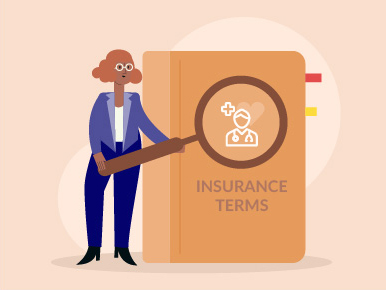Health insurance in New Zealand doesn’t come with a one-size-fits-all price tag. Costs vary depending on things like your age, the type of cover you choose, your lifestyle, and even the excess you select. This article breaks down the key factors that influence premiums so you can better understand what shapes the cost.
Why Kiwis take out health insurance
New Zealand’s public health system is strong, but wait times for non-urgent treatments can be long. Health insurance can give you faster access to private hospitals and specialists, helping you get treatment sooner and with more choice around where and when it happens.
The trade-off? You’ll pay regular premiums. And those premiums vary a lot depending on your personal circumstances and the level of cover you pick.
So, how much does health insurance cost in NZ?
There’s no single “average” price, because health insurance is tailored to each person. Some Kiwis pay lower premiums a week for basic hospital cover, while others may pay hundreds of dollars a month for comprehensive policies that include GP visits, prescriptions, and extras.
The key thing to know: your premium is based on a mix of factors unique to you and the policy you choose. Let’s walk through them.
Factors that impact the cost of health insurance
1. Your age
In New Zealand, health insurance premiums usually increase as you get older. That’s because the likelihood of needing medical care rises with age. Someone in their 20s will generally pay less than someone in their 50s or 60s for the same level of cover.
2. The type of cover
Not all health insurance policies are created equal. Broadly, you’ll find:
- Hospital-only plans — cover for surgeries, hospital stays, and some specialist treatments. Usually the most affordable.
- Hospital + extras — cover that includes GP visits, dental, optical, and day-to-day health costs. More comprehensive, but more expensive.
- Specialist & diagnostic add-ons — policies that include scans, tests, and consultations. These can push premiums higher.
The more you include, the higher your premium is likely to be.
3. Your chosen excess
The “excess” is the amount you agree to pay towards a claim before your insurer covers the rest.
- Higher excess = lower premiums.
- Lower excess = higher premiums.
Choosing the right excess is about finding a balance you’re comfortable with if you ever need to claim.
4. Pre-existing conditions
Health insurers often ask about your medical history when you apply.
- Some conditions may be excluded from cover,
- others may have a stand-down period, or
- in some cases, you may be able to pay extra to have them covered.
This can affect both your premium and what’s covered in your policy.
5. Lifestyle factors
Certain lifestyle factors, like smoking, can influence your health insurance costs. Non-smokers typically pay lower premiums compared to smokers, as the overall risk of needing treatment is lower.
6. Family or individual cover
Covering just yourself will generally cost less than a family policy. However, many insurers offer discounted rates when you include your partner or kids on the same plan.
7. Inflation and medical costs
Premiums don’t stay the same forever. In New Zealand, health insurance costs can go up over time because medical treatment, technology, and hospital services themselves get more expensive. Insurers adjust premiums to keep up with those rising costs.
What health insurance doesn’t usually cover
It’s just as important to know what you’re not paying for. Most policies won’t cover:
- emergency care already covered by the public system,
- pre-existing conditions (unless specifically included),
- cosmetic or elective surgery, and
- routine pregnancy and maternity care.
This means the cost of your premium is focused on giving you quicker access to private care for major health needs, rather than replacing everything provided by the public system.
How to keep costs manageable
While you can’t control every factor, here are some common ways people keep premiums affordable:
- Choosing hospital-only cover and adding extras later if needed.
- Selecting a higher excess to lower ongoing costs.
- Reviewing your policy every year to make sure it still fits your needs and budget.
- Comparing different policies to see what balance of cover and cost works best.
(This is general information only — not advice. Always check your own policy or speak with a licensed adviser if you’re unsure.)
The value beyond the cost
It’s easy to focus on the price of health insurance, but it’s worth thinking about the value too. Many people see it as peace of mind — knowing they can get treatment sooner without worrying about the full cost of private care.
Whether it’s avoiding long waitlists, choosing your specialist, or having more flexibility if something unexpected happens, health insurance is about access and options.
Disclaimer: Please note that the content provided in this article is intended as an overview and as general information only. While care is taken to ensure accuracy and reliability, the information provided is subject to continuous change and may not reflect current development or address your situation. Before making any decisions based on the information provided in this article, please use your discretion and seek independent guidance.











